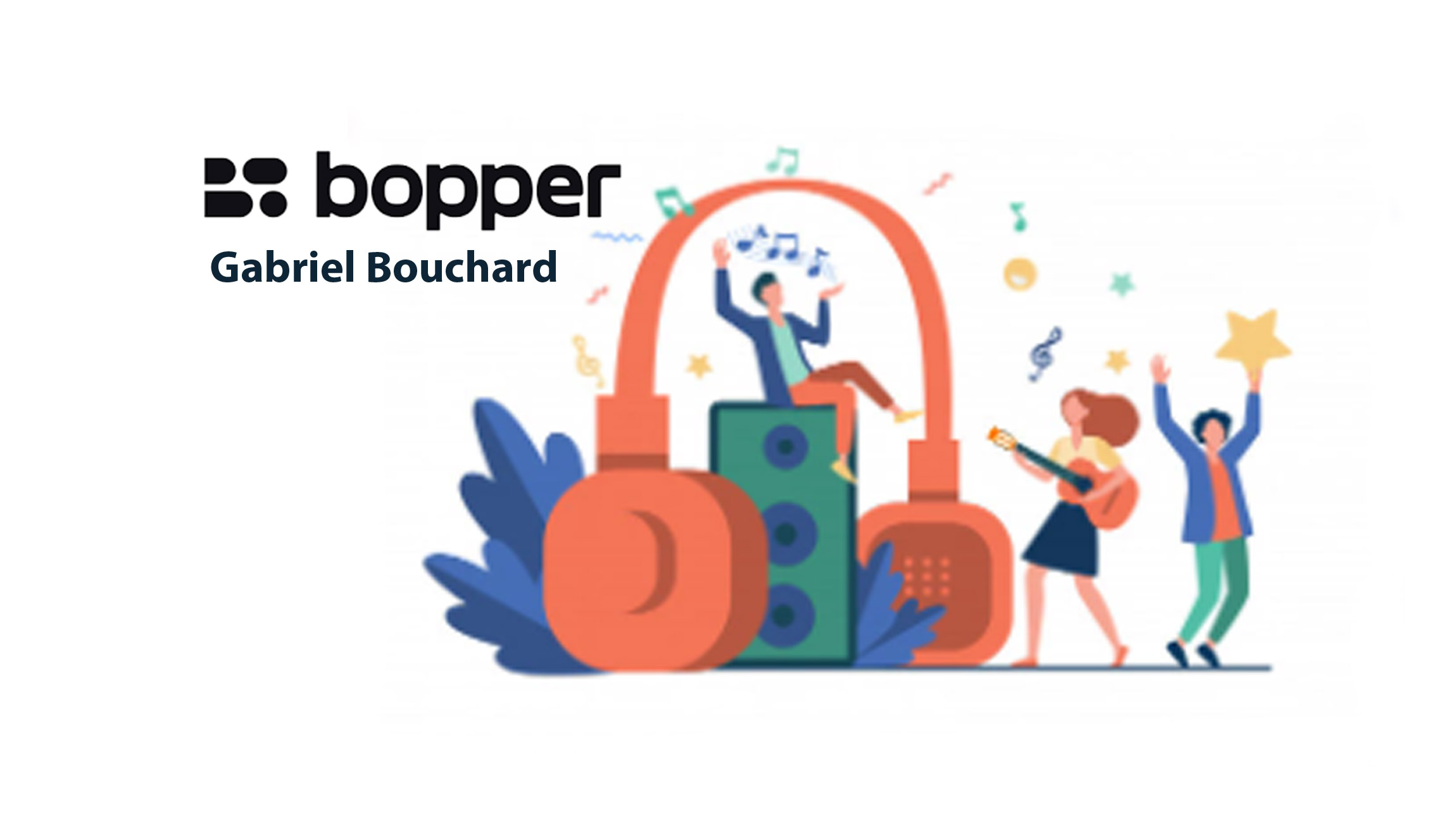The TV commercials of big national brands seem like bright, beautiful works of perfection, with background music that sets the exact right tone. Even more ephemeral social media productions are becoming more and more sophisticated as technology and formats evolve.
Pulling the curtain back on this sophistication tells a different story. Many brand managers and commercial producers are left scrambling through giant stock and royalty-free libraries at the last minute, hoping to find easy-to-license music that works well for their commercial and won’t break the bank. This mad dash for stock music is contributing to a lack of diversity in the global music space. It’s a race to the bottom that is not about to stop. The stock music market will reach 2B$ by 2026 according to the March 2021 Stock Music Market Global Outlook and Forecast. Unfortunately, if no major changes occur with the business model, very little of that money will end up in artists’ pockets.
Marketing Technology News: Your Marketing Automation Can Bridge the Gap in your Marketing-Sales Alignment
Just as major computer manufacturers must be transparent about their offshore supply chains and major grocery chains are expected to demonstrate ethically sourced animal products, multinational corporations and smaller brands alike must hold themselves accountable when it comes to socially responsible music sourcing.
Sourcing music in the ad world
Sometimes a track inspires an ad concept. But many times, once the idea for an ad is set into motion, the music for an ad spot is an afterthought — with creatives (who play have the biggest say in which track is selected) and production managers playing games of process of elimination with different tracks during the edit phase of an ad’s life cycle. For most major brands, from shoot, to edit, to final cut, their advertisements are expected to get out the door and in front of consumer eyes fairly quickly — and if the music is not decided at the outset, it can get pretty hectic in the 11th hour.
Agencies with a large music budget tend to go down original composition road, or opt for well known songs that will take some time to secure. They start working on the licensing and contracts early in the process. But when a track is not at the core of the concept, they tend to flip through a bunch of tracks matching a reference track and playing behind the video to see how things feel. Unfortunately at that point, it is unlikely they will be sourcing their music in a socially responsible manner. Time is of the essence.
Marketing Technology News: What Does it Take to Deliver a Great Customer Experience?
Risks of not sourcing music ethically
One of the easiest and quickest options is for agency producers to sift through creative commons, stock music, and royalty-free services. These types of websites and music services may offer competitive prices or even free tracks, but they usually do so at the expense of artists.
Independent artists, with limited knowledge of music licensing, earn very little revenue off these types of sites, even when their tracks are popular. Contracts for stock songs typically have a set price or a small revenue percentage on a per-month basis, often earning the average artist a few hundred dollars at most. Some make decent money but they are really the exception.
Even worse, many stock music websites procure music directly from composers and artists for a few hundred dollars, making them hand over future royalties or potential financial opportunities for tracks that will, of course, be monetized over and over by the libraries. Artists in these types of agreements potentially risk their entire livelihoods on the promise of exposure. Also, many stock music libraries will limit their legal liabilities in cases of errors and omissions to the cost of the track, leaving their clients exposed if for some reason they missed one of the rightsholders when clearing the track.
How ethically sourcing music impacts the artist
Ethical Sync has the potential to become a major source of income for artists. If they are successful in procuring a sync, an artist can typically make up to 50% of the total sync license price, a higher price tag than what a track might go for on a stock music site. Because of this business model, sync music rosters and libraries can provide a higher quality of music and higher revenue output for artists, attracting artists who would not agree to make their music available on stock music libraries.
Despite the relatively recent uptick in music streaming sites like Spotify, Soundcloud and Apple Music redistributing royalties in different ways, artists are still seeing only a small percentage of the profits, meaning that artists can’t live off of streaming income alone. Along with other avenues for returns like YouTube videos, Twitch streams, and virtual concerts, syncs offer independent artists a much better chance to move from music being a side gig or weekend project, to a full-time career.
Marketing Technology News: Technologies that Saw the Biggest Demand
How ethically sourcing music impacts brands
Brands are increasingly seeking to conduct business in alignment with their values. The tides are turning, and political apathy is no longer an option, especially for brands engaging with younger consumers. Moreover, there’s a laudable desire on the part of companies to express and support a greater social vision, one that is more inclusive, equitable, and transparent for everyone involved.
This social vision can extend to the world of music as well.
Companies who rely on trendy, engaging new music in their products need to start ensuring that their music fits their brand image of social responsibility. The way most brands are treating all suppliers in their supply chain, including music in their brand contents, could represent a major reputational risk moving forward if not done ethically.
One great example of a brand that has taken this message to heart is Red Bull, who has supported and spotlighted emerging artists for more than two decades with their Red Bull Music Academy, as reported by Campaign.Though the RBMA is closed now, Red Bull led a wave of brands toward the idea of partnering with artists in mutually beneficial ways, and will continue to place people and stories at the core of their messaging.
Obviously, being able to use music from recording artists who have demonstrated their ability to build a fan base increases the emotional engagement of consumers toward the brand.
Ways brands can support artists
The appetite for finding the very best music for a spot is undeniable. But historically, numerous obstacles have prevented brands and their agencies from turning to independent music more often. Finding the right track in a sea of music, negotiating the price, clearing the tracks, legal risks are just a few. It’s not the case anymore. There are entirely new business models that are pulling talented musicians and producers away from the low-quality, low-return stock and royalty-free libraries that have dominated the online marketplace for so long. Many new solutions have made their appearances recently that make it as easy and safe to license independent music as it is to buy royalty-free tracks online.
Brands and their agencies who want to make a difference in the music industry will find it does not take that much effort. Here are a few things brands can do now to support independent artists and still get that trendy, exciting sound they want for their ad spots.
- Ask your agency to source ethical music — it’s as easy now as buying unethical tracks and they’ll be happy to have access to a new pool of great music.
- Be prepared to allocate more budget toward music.
- Consider using indie music not only for your broadcast productions but also on your smaller social media productions.
- Don’t leave music selection to the last minute.
Sync budgets start and end with brands. Brands and agencies have the power to negotiate the terms of sync deals, which are open market, not based on complex copyright regulations, label terms, or royalty agreements. So it really is on them to lead the charge toward change.
Marketing Technology News: Up-level Your Marketing Strategy for 2021
Ethical licensing unites artists and brands
When a musician or songwriter is fairly compensated for the true value of their musical work, everyone benefits. Brands contribute to a lively, diverse music scene. Artists make a fairer living not dependent on a few big tech platforms or major labels. Consumers see values in action — and get better, more creative content to engage with.
Agencies and brands can be part of supporting visionary, emerging young artists. By using music from sources designed to benefit musicians, music professionals can foster greater diversity, variety, and creativity among the world’s gifted music makers, and they can help make a difference in the lives of artists who have lost out on 18 months worth of revenue from canceled live performances.



